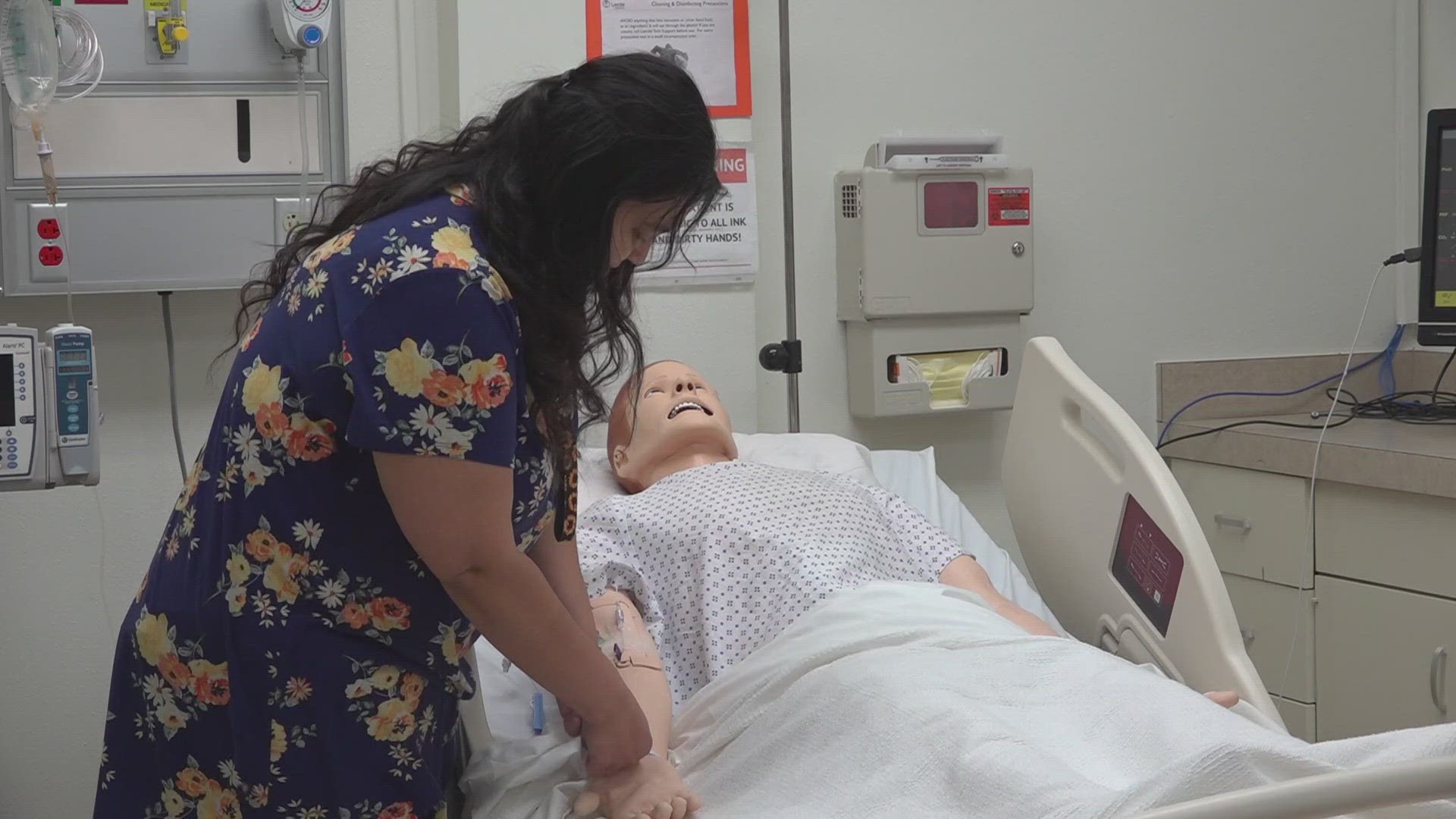ODESSA, Texas — Across the country, the health industry has been hit hard by a lack of nurses, who have been facing burnout from short-staffed hospitals and the COVID-19 pandemic.
Which is why local colleges across the Permian Basin have begun to pay a little extra attention to their nursing program to provide the Permian Basin and the country with a stronger pipeline of nurses.
Even without the effects of stress and burnout, it can be difficult for a student to get into nursing schools due to the long wait times.
"A traditional undergraduate nursing school receives a lot of applications," Dr. Lauren Sullivan, the assistant dean of Texas Tech University Health Science Center's School of Nursing, said. "It becomes very competitive because there are only so many spaces within a classroom as well as within a simulation center, as well as within a clinical site.”
So when it’s time to recruit prospective students, schools get creative when searching for students.
Institutes such as Odessa College look to find young minds at the high school level to bring them into their programs.
“We have a very special partnership with our ISD's," Yesenia Walsh, the Director of Associate Nursing Program of Odessa College, said. "We actually do have a dual credit LVM (Licensed Vocational Nurse) program and so they get to see some of their peers walking in the hallway with their scrubs or listening to all of the really cool things they get to do. So I think that kind of gives them a little bit of an edge of what a nursing student can do, what nurses in the Permian Basin can do.”
Schools can also offer extra benefits, like scholarships or working inside the hospitals.
Texas Tech University have a health sciences program in Odessa alongside a long list of alumni who can offer a gateway into the industry to a prospective nurse.
“That has created lots of opportunities for us to work more effectively with our hospital partnerships to be able to offer enrolled students more scholarship opportunities and of course, traditional students who are needing to earn clinical hours creating pathways in order for them to be able to actually get paid for some of those clinical hours," Dr. Sullivan said.
Depending on the program, it can take about two to four years to officially get a nursing certificate.
From there, nursing students can go anywhere they choose, but for those who want to stay close to home, schools like The University of Texas Permian Basin offer a chance to get a prestigious education and go right to work in the Permian Basin after graduation.
“The ability for those in our community to choose such a noble career, to have the scholarship and the philanthropic support to be able to be successful here and then immediately find a job right here in our community," UTPB President Dr. Sandra Woodley said. "I mean, it's an amazing opportunity for those who want to be nurses here.”
These schools are trying their best to get the next generation of nurses ready for the hospitals. At the same time, they are also trying to mold these young minds into people who can help out anywhere, whether inside or outside the hospital.
“We are trying to create students who will go out into the communities and they are leaders and they are lifelong learners and really just trying to make a difference for everyone out in the community outside of the practice setting as well,” Walsh said.

